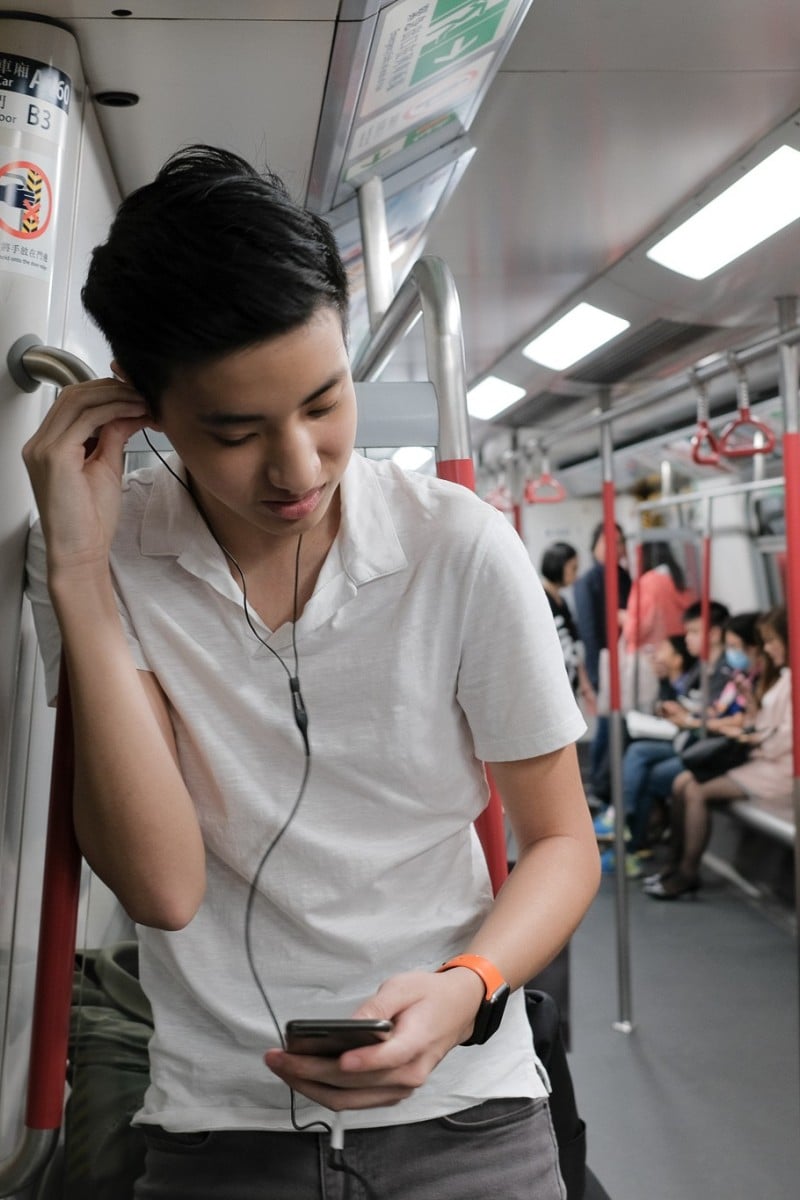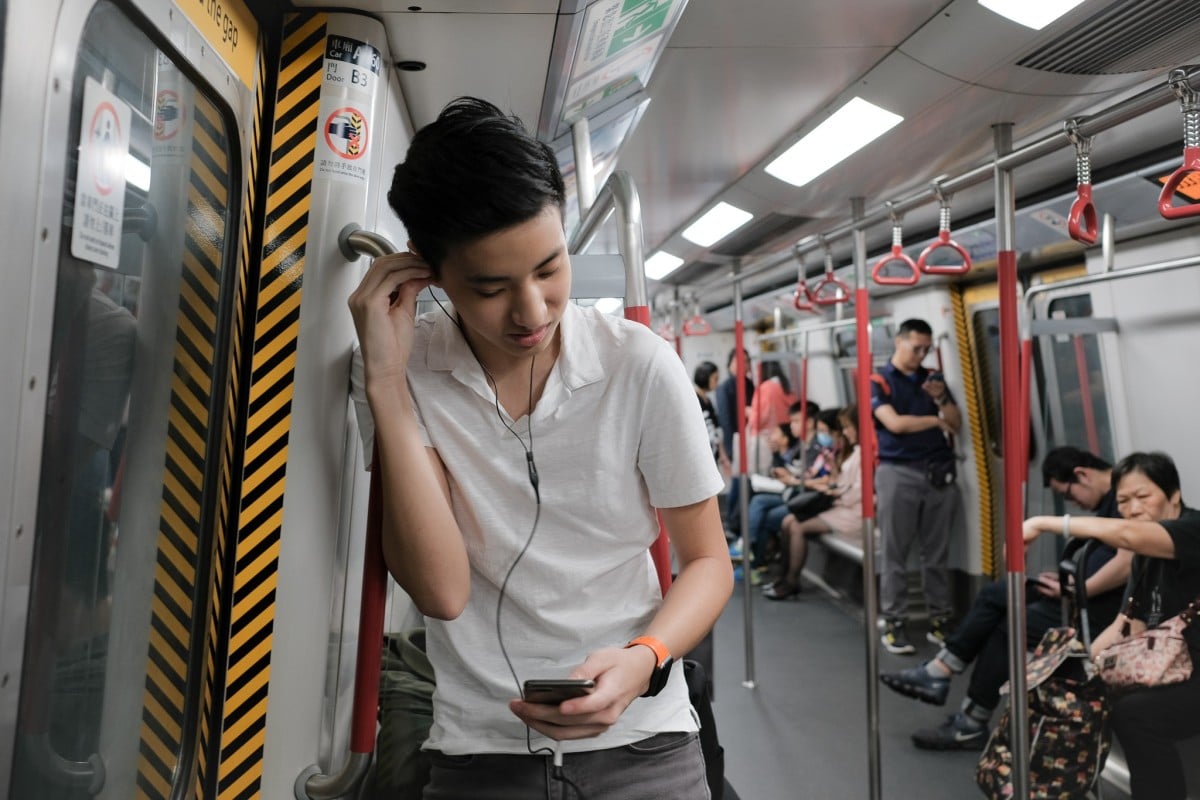
The popularity of Instagram, Snapchat and KOLs show that the virtual world is becoming less an escape from the real world and more an extension of it
 Secondary school student Joshua Cheng uses social media to strengthen his relationships.
Secondary school student Joshua Cheng uses social media to strengthen his relationships.As soon as Joshua Cheng sets foot on the MTR, he enters another world. He puts in his earphones and starts listening to music. Depending on his mood, he might tune in to jazz, classical, pop, EDM, or rap. From time to time, he talks with his friends on Snapchat to keep the streak alive, or scrolls through Instagram.
It’s a world without eye contact or small talk, but it’s where he feels most content.
“I go on social media a lot. It gives me something to look at when I’m bored and allows me to connect with my friends. I can see what they are up to [on the platforms],” says Joshua, a student at HKUGA College.
The 18-year-old’s experience is far from unique. In a study of 424 primary and 1,621 secondary students by the Hong Kong Paediatric Society and Hong Kong Paediatric Foundation, 93 per cent had a social media presence. What’s more, 32 per cent spent more than nine hours a day on average on social media.
Studies have indicated that frequent social media usage can have a negative impact on our health, causing some researchers to perceive it as an addictive problem.
However, Johnson Cheung Chun-sing, a lecturer at the department of social work at Chinese University (CUHK), is sceptical about whether social media usage among teenagers should be seen as an addiction.
Cheung argues that being on social media is different from other addictive behaviours like drinking and smoking. “If you stop your addiction, you’re likely to have a better life,” says Cheung. “But for many teens, social media is their entire world. If you unhinge them from it, their lives won’t be any better.”
Joshua’s thoughts echo those of Cheung: “I cannot imagine how my life would be without social media,” he says. “It’d be so dull, and I wouldn’t be able to talk to my friends whenever I needed and wanted to.”
He recalls one weekend when he and his friends had a conversation on Snapchat that lasted five hours, from midnight to 5am. “I totally enjoyed that, it was so much fun.”
As fun as connecting with others can be, our social media habits may also partly stem from fear – a fear of missing out (Fomo). “Being on social media is almost the only way to not be left out,” says Cheung.
He says that on the surface, it may seem as if people are addicted to social media. In fact, they just want to feel included – as humans have always done, in any social structure.
“If we treat teenagers’ social media use as an addiction, it overshadows the real problem: our constant need to seek acceptance from others. It also puts unfair blame on teenagers,” Cheung says.
The internet, he says, has closer ties with the real world that we might think – so much so, that many people have turned their on-screen habits into a full-time job. Cheung says that career success nowadays doesn’t have to be achieved through old, traditional routes.
“It may come from gaining a sudden recognition or through doing stuff that gets a lot of attention.”
An example is the rise of online key opinion leaders (KOL), also known as “influencers”. It has shown us that social media can turn ordinary people into public figures with real-world power.
Cheung still feels that our need for online validation is not healthy. But he adds that spending less time on our phones would only remove one symptom of this issue, rather than tackling the cause.
He believes that instead of cutting ourselves off from the online world, we should try to gain a better understanding of it.
“Adults should try stepping into teenagers’ world first, and learn more about [how they use] their social media platforms.”
Ten years ago, scholars referred to the internet as a virtual world. But now, social media has become a real world that teenagers are born into – and it’s time adults understood that.
“It creates palpable pain and pleasure; it generates real shock. I don’t think it’s a virtual space any more,” Cheung concludes. “And if we continue to treat it as if it isn’t real, and make a clear cut between the two worlds, we can never understand the challenges teens are facing.”
Edited by Charlotte Ames-Ettridge
You might also like:
Face Off: Does social media bring people closer together?
How to stay safe on social media and the internet: 5 tips to avoid identity theft and other dangers
9 inspiring Instagram accounts that make your day and drive away that sense of #FOMO
